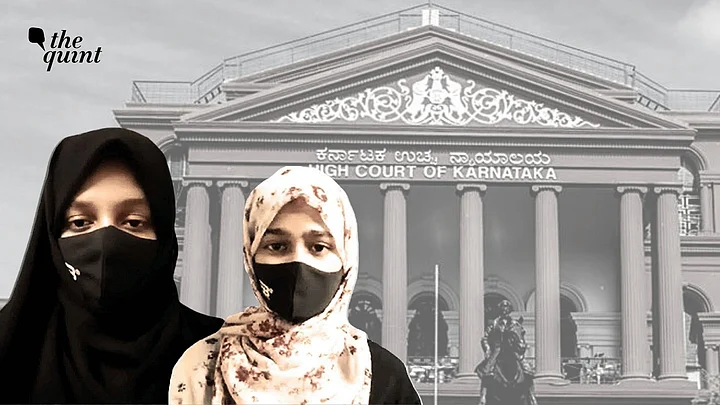In a public statement released on Saturday, 12 February, Swami Bhaveshanand of Shri Ramakrishna Ashram, Karwar, defended Devadatt Kamat, the lawyer who represented the Muslim students in the Karnataka High Court, arguing in favour of their right to wear hijabs.
Later, Kamat thanked the swami for speaking out in his support.
After the hearings of the case on Friday, 11 February, Kamat was criticised by right-wing outfits, accusing him of disregarding Hindu scriptures in the course of his defence.
Swami Bhaveshanand, in his statement, termed the present situation 'unnecessary and not in the interest of peace and harmony,' while supporting Kamat in his duties as a lawyer.
"I am more pained to observe that the name of Shri Devadatt Kamat - Senior Advocate in the Supreme Court is being dragged in this controversy simply because he represented a party in the Court as an Advocate," he said.
"Some elements are trying to brand him as supporting a cause against Hindu Religion. This perception is absolutely uncalled for and baseless. A lawyer representing a client in the court has to do his duty and justice to his client's cause. That is a professional duty and responsibility. It cannot be branded as a cause against the Hindu Religion," he further added.
Swami Bhaveshanand remarked how Kamat was a "devout follower of a Ramakrishna Vivekananda Philosophy," and was a spiritual person, hailing from a spiritual background.
"He was held in high esteem by Uttar Kannada, for his contribution to the causes of the place," Swami Bhaveshanand said.
He requested people not to indulge in any abusive or derogatory behaviour towards Kamat, saying that "any personal remarks or comments against him are truly condemnable."
Kamat appeared on behalf of the Muslim students in the high court, requesting it to consider allowing girls students wearing hijabs into the classrooms until an order was passed with respect to the rule made by the state government.
The high court bench, led by Justice Ritu Raj Awasthi, had turned down the request, saying that "it was a matter of few days only."
The case on the validity of the rule, and whether or not hijab was an essential religious practice for Muslim Girls, will be heard by the bench from 14 February onwards.
(At The Quint, we question everything. Play an active role in shaping our journalism by becoming a member today.)
